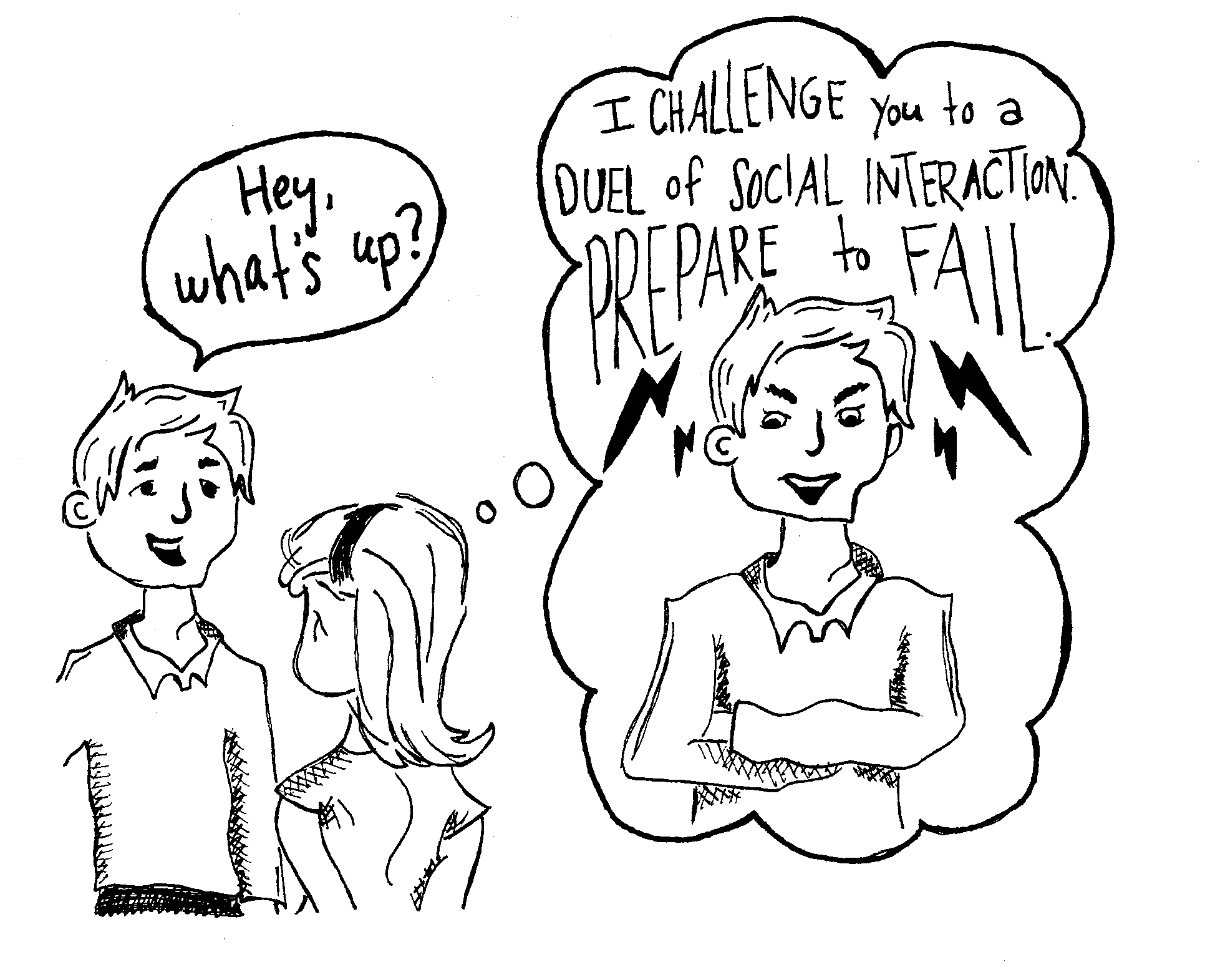Interview lessons
April 7, 2017
I have the voice recordings from every interview I have conducted as an Orient reporter. At last count, I had 105, an average of slightly more than two interviews per week. They occupy a non-negligible portion of my phone’s memory space.
The first time I interviewed someone, I cried in the stairwell of Kanbar Hall afterward. This outcome wasn’t shocking—conversation has never come naturally to me, whereas I am fairly experienced in semi-public crying.
During high school, my innate shyness devolved into something worse. I eschewed haircuts for a year because I did not want to make small talk with the stylist; I cried uncontrollably for half an hour if I had to make a phone call; I couldn’t rid myself of a weird urge to pull the steering wheel on my way to school every morning. I couldn’t hang out with friends unless I knew everyone who would be there; I stopped ordering coffee after the barista made me feel awkward one time; attending my senior prom was out of the question.
My first therapist introduced me to the phrase “social anxiety disorder.” It is a real thing; I Googled it.
With time, help and practice, I started to get better. I learned to order coffee and make phone calls without letting my anxiety overwhelm me. I discovered that I could experience feelings besides dread and despair, and I began to think of myself as something other than awkward and dysfunctional. I got my hair cut before I left for college.
Learning to function in the face of anxiety was important, but it didn’t get me everything I wanted. Life is more than ordering coffee and calling people on the phone. Friendship is more than a series of non-awkward interactions.
My mental health is better now than it was a few years ago, but college is tough sometimes. I still get nervous when I talk to athletes, smart people, people who are older than me, outdoorsy people, preppy people, people who seem to have a lot of friends, artsy people, people from Massachusetts, people who have their lives together and anyone who starts a conversation with me when I am not expecting it.
I skip dinner more often than I would like to admit because texting people to make plans is scary. I have shown up at professors’ office hours only to stand in front of their door and decide that my question is not important enough to justify bothering them. I don’t know how to tell a cute guy at a party that I might panic if he moves closer. Kanbar is not the only academic building in which I have cried.
Amidst these struggles, interviews became a comfortable way for me to talk with people. I email someone asking to chat; they usually say yes—and if they decline, it’s not personal. We arrange a place and time; I look people up using the student directory and Facebook so I can recognize them. I write questions in my spiral notebook beforehand. I know how to make polite small talk before diving into the actual interview topic. We have a conversation; I write an article; they go on with their life.
One hundred and five interviews is a lot. No one has made me cry since that first time. I’ve talked with athletes. I’ve talked with people who have their lives so put together it scares me. I’ve talked with artsy people about their art and smart people about their research, which goes way over my head but I write the article anyway. Some people have taken time out of their days to give me their vital opinions on the weather or Jack’s Juice Bar; others have been open, honest and vulnerable with me about really difficult subjects.
These people make me want to be open about my issues too. Because the biggest lesson I have learned from interviews is that Bowdoin students are often dealing with way more than we let show.
I still get nervous when I meet someone for an interview. I don’t know if my anxiety will ever really go away, but I am starting to be OK with it. The individuals I talk with each week remind me that Bowdoin is full of passionate, thoughtful people who are willing to share their time and stories with a perpetually nervous reporter. They’ve taught me that being anxious doesn’t make me dysfunctional. As long as I know that, I can figure the rest out.
Jessica Piper is a member of the Class of 2019.


Comments
Before submitting a comment, please review our comment policy. Some key points from the policy: